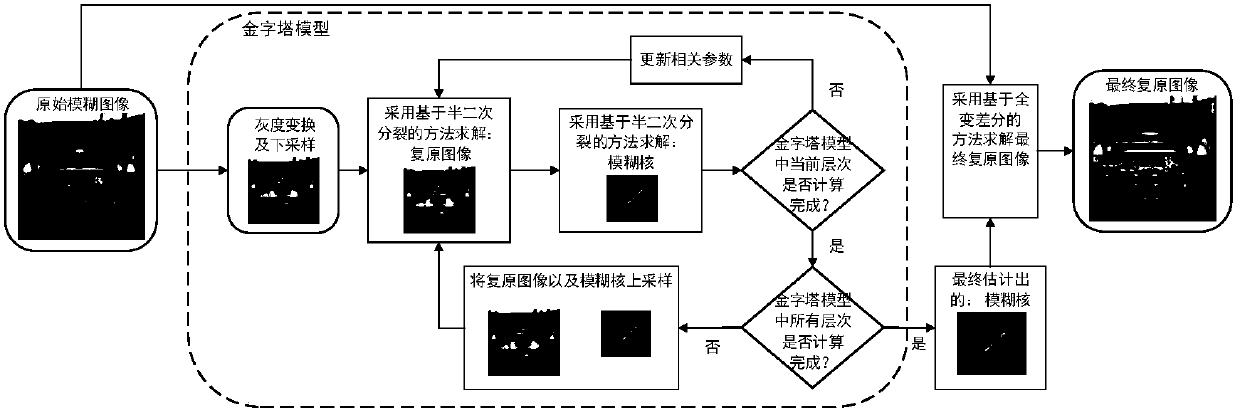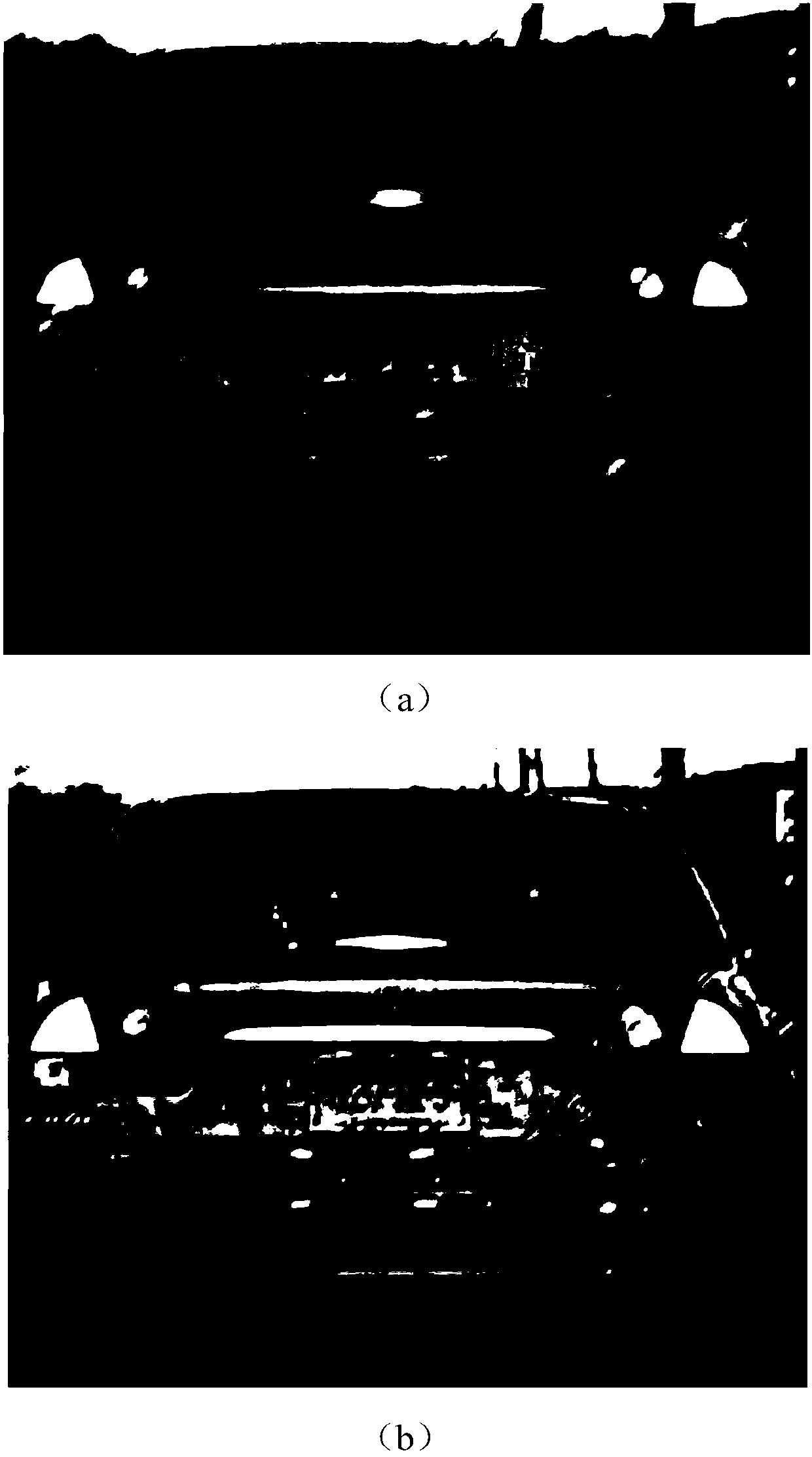A method for blind motion blur removal of natural images based on l0 regularization
A natural image and motion blur technology, applied in the field of image restoration, can solve the problems of dense blur kernel, estimation of discontinuous blur kernel, lack of prior knowledge, etc., and achieve the effect of good sparse characteristics
- Summary
- Abstract
- Description
- Claims
- Application Information
AI Technical Summary
Problems solved by technology
Method used
Image
Examples
Embodiment 1
[0056] Such as figure 1 As shown, a method for blindly removing motion blur from natural images based on L0 regularization includes the following steps:
[0057] S1: Convert the input original blurred image into a single-channel grayscale image;
[0058] S2: When solving the fuzzy kernel, the L0 regular term is introduced, and the solution model is constructed as shown in formula (1):
[0059]
[0060] According to this, the solution model is combined with the pyramid model, and the fuzzy kernel k is obtained by solving the model in formula (1) based on the semi-quadratic splitting method, where And γ are the corresponding weight parameters, in this embodiment γ=1e -4 ;
[0061] S3: According to the fuzzy kernel k obtained by the solution of S2, the image of each channel in the original blurred image is restored using the classic non-blind deconvolution method based on the total variation difference, and then the restored images of each channel are combined. Find the final restored ...
PUM
 Login to View More
Login to View More Abstract
Description
Claims
Application Information
 Login to View More
Login to View More - R&D
- Intellectual Property
- Life Sciences
- Materials
- Tech Scout
- Unparalleled Data Quality
- Higher Quality Content
- 60% Fewer Hallucinations
Browse by: Latest US Patents, China's latest patents, Technical Efficacy Thesaurus, Application Domain, Technology Topic, Popular Technical Reports.
© 2025 PatSnap. All rights reserved.Legal|Privacy policy|Modern Slavery Act Transparency Statement|Sitemap|About US| Contact US: help@patsnap.com



